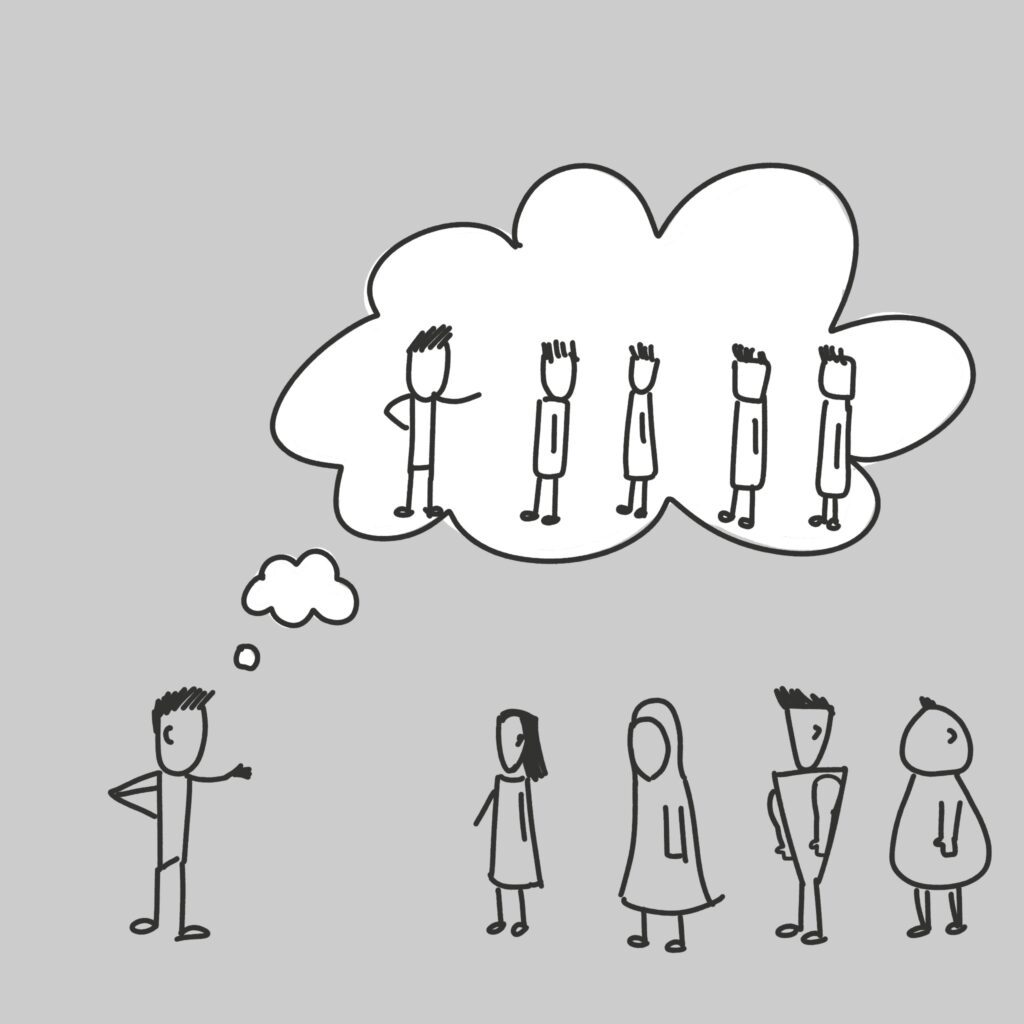Quick question: are most people like you, or different from you?

Chances are you think most people are like you, but that may not be correct.
Here’s why this happens and what can we do about it.
Introducing the false consensus effect
This bias is called the “False consensus effect”.
It occurs because we tend to spend time with people (family and friends) who are like us. The problem is, that doesn’t mean EVERYONE is like us.
This leads to us projecting our values on society and neglecting other views.
An election example
The run up to elections are a great example of this effect.
People are often shocked when their party doesn’t win because “everyone they know” supports their party. In some cases this is because their friend fail to share their real opinions. But it also happens because their sample is too limited.
If they spend more time with more diverse people, they would have a better picture.
So what causes the false consensus effect?
Theories on the cause of the false consensus effect
There are lots of theories and factors that may explain the false consensus effect including
- The desire to feel we belong in society (so we imagine society is like us)
- A reliance on our bias experiences (we ignore other views)
- Empathy is difficult (it’s easy to assume our own thoughts)
- Anchored by our thoughts (Our initial ideas sway our view of others)
And some factors seem to make the false consensus effect stronger.
When we have particularly strong beliefs which we believe to be correct, we are more likely to over estimate their support [Morrison KR, Matthes J. 2011]
This applies even when we don’t think they are the majority opinion.
So how can we minimise the effect?
How to manage the false consensus effect
The two simplest ways to reduce the false consensus effect are
- Engage with other perspectives
- Check that your assumptions are correct.
These help break our assumptions and introduce new viewpoints.
We can also reduce our motivations to be right which can help us accept other data.
Summary 👨🏫
The false consensus effect says that we tend to believe others share the same beliefs as us even when they don’t.
We can counter it by engaging with other perspectives and checking the consensus.

Leave a Reply